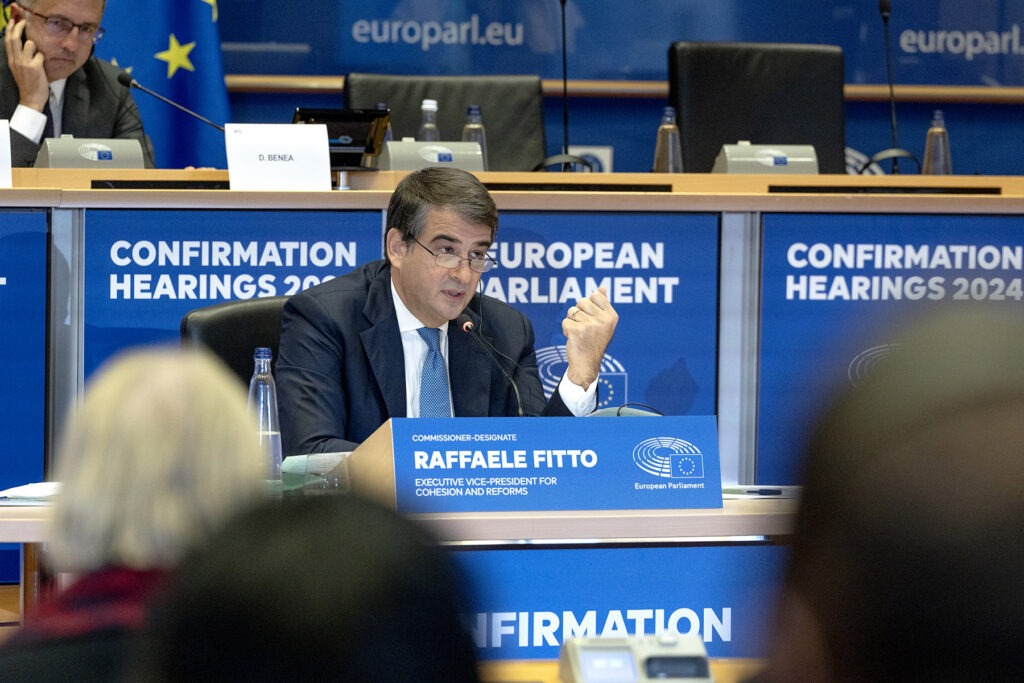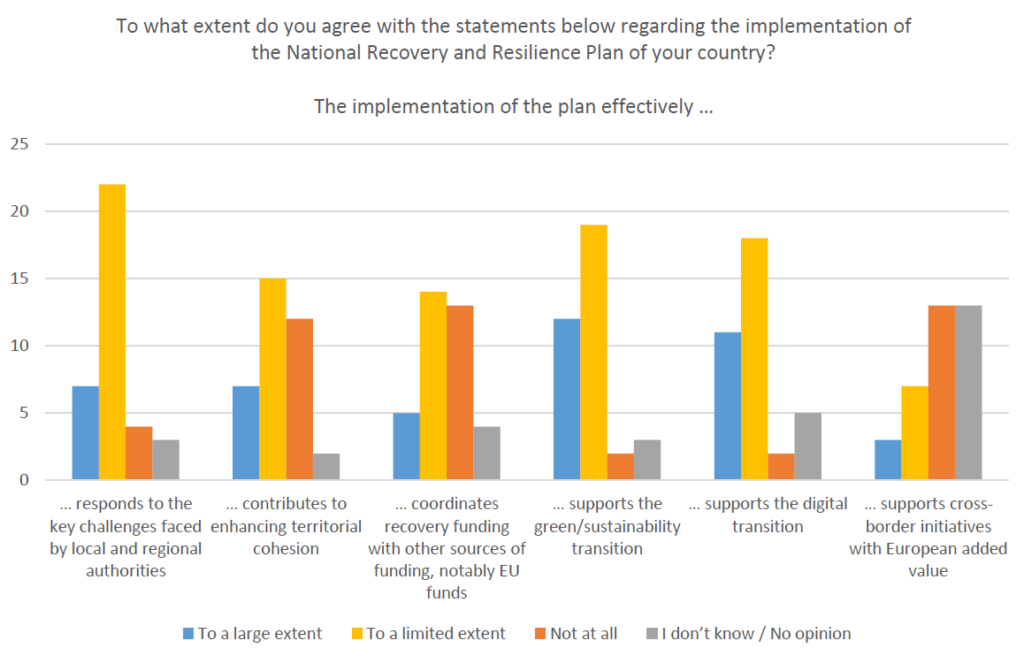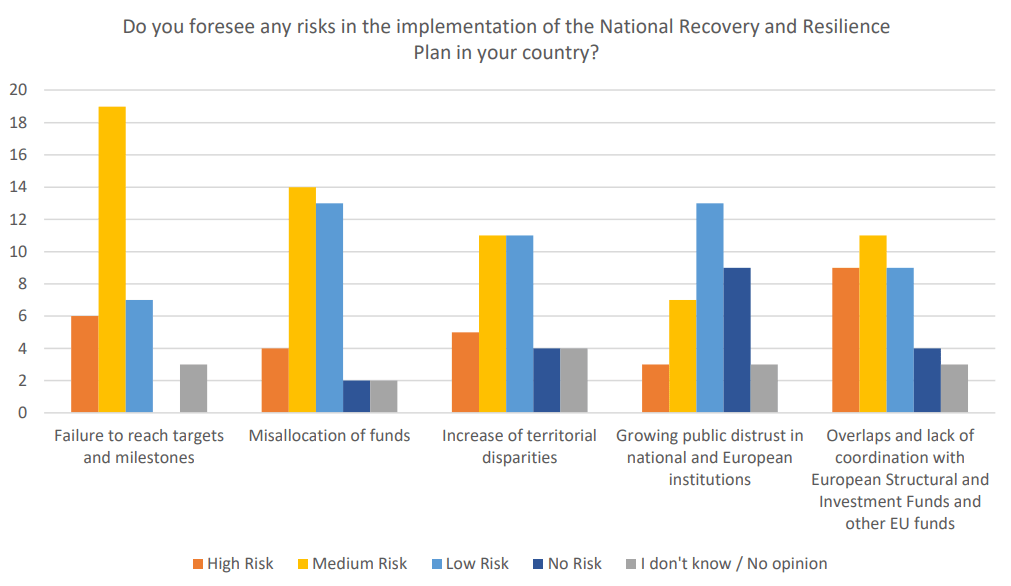New EU Mandate: Navigating a Crossroads in European Funding and Governance
With the confirmation of the European Commissioner College, the second mandate of Ursula von der Leyen is ready to start. If you are wondering on the direction the EU will turn, especially when it comes to what is coming next for local governments, the hearings of Commissioners-designate provide valuable insight into the mindset, priorities and challenges of the next EU Executive. It is evident that addressing these challenges – boosting European competitiveness and improving citizens’ lives – will require more than ambition. Vision needs to be translated into action through effective policy implementation and ensuring funding meets the Europeans everywhere. It will also be crucial to avoid learning the wrong lessons from past experiences, especially when it comes to fund management and policy implementation.
What did the interviews with College candidates at the European Parliament reveal?

Yet the hearings offered little reassurance for local governments. The centralisation intentions clearly outlined in Commission President Ursula von der Leyen’s political guidelines, which propose replacing the Recovery and Resilience Facility (RRF) with “fewer programmes and a plan for each country linking key reforms with investment”. The RRF, the centrepiece of the EU’s €800 billion NextGenerationEU recovery package, revealed the pitfalls of the performance-based, cash for reform approach. From the outset, CEMR, in partnership with the Committee of Regions (CoR), has closely monitored the RRF’s rollout, consulting with stakeholders to assess local and regional governments participation. The findings are clear: the exclusion of those closest to understanding local needs has hampered the RRF’s effectiveness. The lack of involvement of local governments has led to misaligned priorities, with some reforms and investments failing to address local needs or capitalise on the unique insights and expertise of regional authorities. With the risk of not only missing the RRF community targets but also displacing other essential funding streams, such as cohesion funds, further compromising the EU’s territorial cohesion goals.

The hearings of the Commissioner-designates echoed these concerns. Commissioner-designate Valdis Dombrovskis faced sharp criticism for the RRF’s shortcomings, with Members of the European Parliament (MEPs) expressing frustration over the performance of the RRF to date. Mr Dombrovskis conceded that stronger partnerships with local governments are essential for the RRF to have a transformative impact, and this needs to be addressed as we go forward. In his hearing Commissioner-designate for Budget Piotr Serafin backed the idea, expressed in von der Leyen political guidelines, of single national plans for investment and reforms but also emphasised the central role that regions should play in the elaboration of these plans. On the other hand, Vice-President and Commissioner-designate for Cohesion and Reforms Raffaele Fitto did not substantively address MEPs concerns regarding the risks of centralisation. However, he expressed that a single national plan would not be problematic, provided that local and regional governments are consulted – demonstrating at least a recognition of multi-level governance.
We need to make room for learning complex lessons
Designed to foster a greener, more resilient, and innovative Europe, the delays in implementing national recovery plans have worsened the governance conversation surrounding the RRF, casting doubt on its ability to meet its goals. However, the proposed cure risks misusing EU resources and undermining the critical green and digital transitions essential for towns, cities, and regions.

CEMR is committed to promoting evidence-based evaluations of funding performance, ensuring that critical development policies are not subject to hasty adjustments. Local governments, which implement 70% of European legislation—including key policies for the green transition—cannot be excluded from these discussions. They are on the frontlines of delivering climate action, digital innovation, and social transformation. Their unique territorial knowledge ensures that EU funding aligns with real, localised needs rather than blanket national strategies that often overlook regional disparities. As we learnt from the RRF, neglecting this level of expertise risks inefficiencies, missed opportunities, and a failure to meet citizens’ expectations. Discussions on the next major EU funding package must acknowledge the lessons from the RRF’s shortcomings. Decentralising funding management will not only enhance transparency but also ensure resources are channelled where they can make the most significant long-term impact.
As the new Commission takes office, CEMR will continue pushing for transparent monitoring of the RRF’s performance, emphasising the need for territorial expertise to shape EU funding policies. Ensuring that those with the greatest knowledge of their localities have a say in how resources are allocated is not just a matter of fairness—it is the key to delivering sustainable, transformative outcomes across Europe.

Senior Advisor – Governance & Institutional Relations






